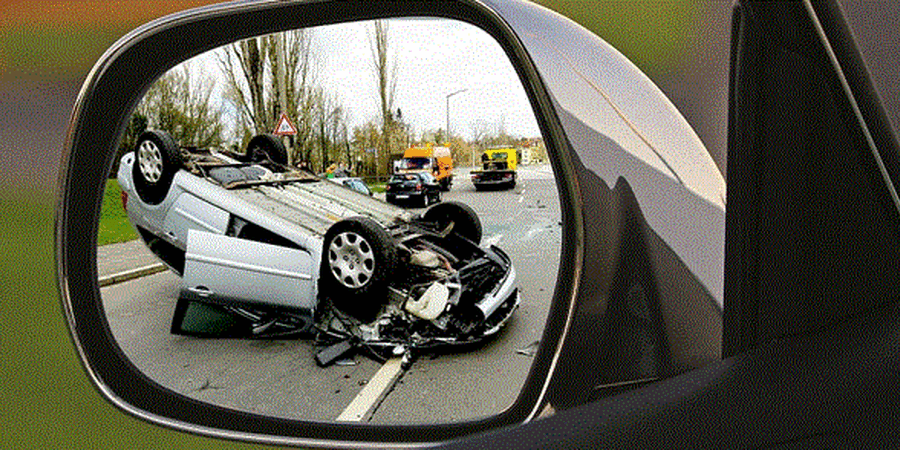Philadelphia, PA
- A car accident can be a stressful and overwhelming experience, leaving drivers shaken and wondering what to do next. Unfortunately, scammers prey on this vulnerability, using sneaky schemes to take advantage of unsuspecting victims.
Understanding how these scams work is the first step in protecting yourself. This article is going to explore the most common post-car accident scams, warning signs to watch for, and steps to help better safeguard yourself from fraud.
Common Post-Car Accident Scams
First, it’s important to know the common scams you might run into after a car accident. Once you know them, you can stay on the lookout and be prepared to protect yourself.
Tow Truck Scams
After an accident, an unmarked or even seemingly normal tow truck may suddenly appear, offering to take your car to a repair shop. Tow truck scammers often charge exorbitant towing and storage fees or take your car to an undisclosed location, where they demand excessive payments before returning it.
Fortunately, legal actions against these scammers are increasing. For example, the Pennsylvania attorney general charged a tow truck company for a handful of both felonies and misdemeanors for scamming people for $300k.
Fake Injury Claims
In some cases, the other driver or even a pedestrian might exaggerate or completely fabricate injuries after an accident to demand compensation. They may claim whiplash, back pain, or other hard-to-disprove injuries, hoping to pressure you into an insurance payout or personal settlement.
Staged Accidents
Scammers can deliberately cause accidents by making sudden stops, waving you through intersections only to hit you, or coordinating with other drivers to create a crash. Their goal is to file fraudulent insurance claims against you.
Look for pre-existing car damage, including low upkeep, like excessive dust and corrosion and weathered tires.
Fake Insurance Representatives
After an accident, you may receive a call from someone claiming to be from your insurance company, asking for personal information or payment. These scammers often try to get your credit card details or trick you into believing you owe money for repairs.
Excessive Repair Charges and Phantom Repairs
Some dishonest repair shops take advantage of accident victims by overcharging for repairs, billing for unnecessary work, or even charging for services that were never performed. These scams can inflate costs and cause delays in getting your vehicle back.
Red Flags To Watch For
Recognizing the warning signs of a scam can help you avoid becoming a victim. Common red flags to be aware of after a car accident include the following:
- High-Pressure Tactics: Scammers often try to rush people into making a decision. Legitimate professionals give you time to verify their credentials.
- Requests for Cash-Only Payments: Be cautious if someone insists on cash payments or refuses to provide a receipt. Reputable companies offer multiple payment options and provide documentation for every transaction.
- Suspicious Witnesses: In staged accidents, scammers often have fake “witnesses” who back up their version of events. If a bystander appears too eager to place the blame on you or seems to know the other driver, be cautious.
- Unsolicited Contact From “Insurance” Representatives: If you receive a call from someone claiming to be your insurance adjuster but you never contacted them first, it may be a scam.
- Unusually High Repair Estimates: If a repair shop provides a quote that seems significantly higher than others, it could be an attempt to overcharge you. Always get a second opinion before agreeing to any repairs.
How To Protect Yourself
Taking proactive steps can help you stay safe and avoid scams after a car accident. If you’ve been in a car accident, take a few minutes to collect yourself and set yourself up for success.
Stay Calm and Document Everything
According to the attorneys at Cohen, Feeley, Altemose & Rambo, documenting an accident can be an essential part of protecting yourself and recovering potential damages.
Take photos of all vehicles involved, including license plates, damage, and street signs. If you can, get contact information from the other driver, passengers, and witnesses.
One of the first orders of business is to call the police to file an official accident report, even for minor crashes. Finally, keep copies of any paperwork related to the accident, including repair estimates and tow receipts.
Contact Your Insurance Directly
Always report the accident to your insurance company before speaking to anyone else. This may affect your deductible, but documenting the damage is necessary for repairs and other claims. Scammers may pose as insurance representatives to get personal information or pressure you into a fraudulent claim.
To stay safe, call the customer service number on your insurance card, not a number provided by a third party. Never give out sensitive information like your Social Security number or banking details — your insurance should already have this information. Lastly, be wary of any unexpected settlement offers that seem too good to be true.
Use Trusted Services for Towing and Repairs
If your car needs to be towed or repaired, take precautions to avoid scams. Use a tow truck service recommended by your insurance company or the police. Research repair shops before agreeing to any work, making sure to check reviews and ask for references. Finally, request a detailed, written estimate before approving any repairs.
Install a Dashcam
A dashcam can provide key evidence if you’re involved in a staged accident or a fraudulent claim. Video footage can help prove what really happened and protect you from false accusations.
Falling victim to a scam after a car accident can make an already stressful situation even worse. Scammers take advantage of confusion and urgency, using deceptive tactics to steal money, and personal information or inflate damages. However, by staying alert, recognizing common scams, and taking proactive steps to protect yourself, you can keep an overwhelming situation from escalating into a devastating one.


